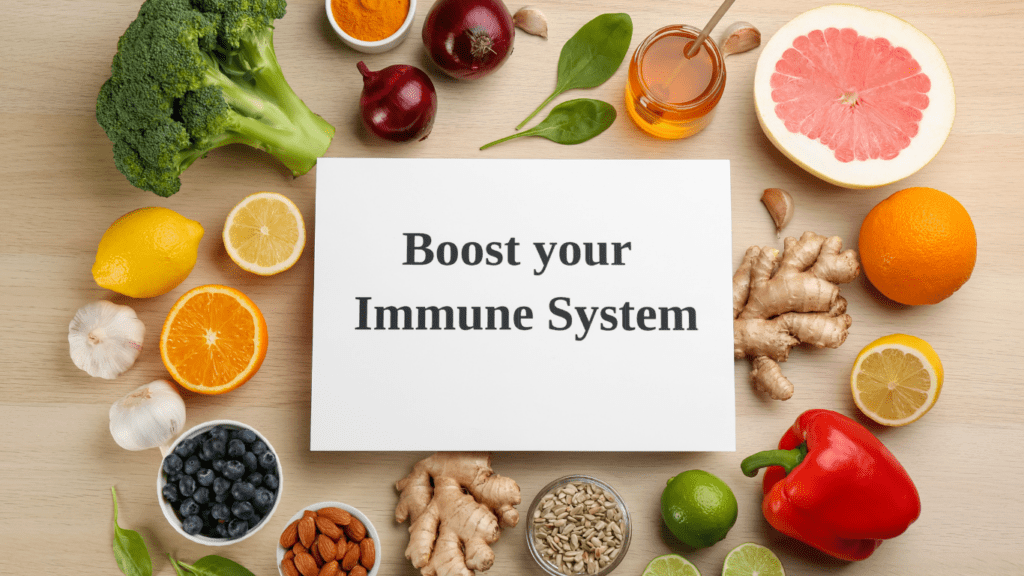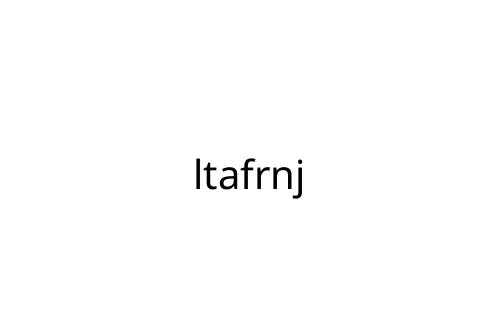Understanding Your Immune System
The immune system defends the body against harmful invaders like bacteria, viruses, and toxins. It’s a complex network of cells, tissues, and organs working together to protect overall health.
White blood cells, also called leukocytes, play a key role in identifying and attacking pathogens. They work with other components, like the lymphatic system and spleen, to create a coordinated defense system.
Two main parts of immunity exist: innate immunity and adaptive immunity. Innate immunity provides rapid, broad protection and activates as soon as threats appear, while adaptive immunity develops specific responses over time after exposure to pathogens.
Infections and chronic stress can weaken immunity, making the body more vulnerable. A balanced lifestyle with proper support helps maintain this system’s strength and efficiency.
The Role Of Nutrition In Immune Health
Nutrition directly affects the immune system’s ability to protect the body. A balanced diet with essential nutrients supports immune cell functions and enhances resilience against infections.
Key Vitamins And Minerals For Immunity
Specific vitamins and minerals contribute significantly to immune health.
- Vitamin C: Improves the production of white blood cells, which fight infections. Found in oranges, kiwis, and strawberries.
- Vitamin D: Enhances pathogen-fighting effects of monocytes and macrophages. Sources include sunlight, fortified milk, and salmon.
- Zinc: Supports the development and activation of immune cells like T-cells. Present in shellfish, pumpkin seeds, and legumes.
- Vitamin E: Protects immune cells from oxidative stress and is rich in almonds, sunflower seeds, and spinach.
- Iron: Promotes the growth of immune cells. Found in poultry, beans, and fortified cereals.
Adequate intake of these nutrients ensures optimal immune response.
Immune-Boosting Superfoods
Certain foods naturally enhance immune functions.
- Citrus Fruits: Rich in vitamin C, they strengthen overall immunity. Examples include grapefruit and lemons.
- Garlic: Contains allicin, which helps combat infections. It’s effective when consumed raw or lightly cooked.
- Ginger: Reduces inflammation and may help ease cold-related symptoms. Used in teas, soups, and marinades.
- Spinach: Packed with iron, vitamin C, and antioxidants. Steam it lightly to retain nutrients.
- Yogurt: Offers probiotics that improve gut health, supporting immune system regulation. Opt for plain, unsweetened variants.
Incorporating these foods into meals bolsters the body’s defenses against illness.
Lifestyle Changes To Strengthen Immunity

Strengthening immunity through lifestyle changes involves adopting consistent, healthy habits. These practices enhance the body’s defense mechanisms and promote long-term well-being.
Importance Of Regular Exercise
Engaging in regular physical activity improves circulation, allowing immune cells to move more effectively throughout the body. Moderate exercises, like walking, cycling, or swimming for 30 minutes five times a week, help lower inflammation and support immune cell functions. Overtraining or excessive exercise, however, can suppress the immune response, so balance is key. Activities like yoga or tai chi also enhance immunity through combined physical and stress-relief benefits.
Managing Stress For Better Immune Function
Chronic stress disrupts hormonal balance, weakening the immune system over time. Practicing mindfulness techniques, such as deep breathing, meditation, or journaling for at least 10 to 20 minutes daily, aids stress management and promotes a balanced immune response. Social connections and hobbies also reduce stress levels, making a significant impact on immune health. Avoiding high-pressure situations or learning to set boundaries where possible further helps control chronic stress.
The Power Of Quality Sleep
Sleeping 7 to 9 hours each night optimizes immune function, as restorative processes occur during sleep. Insufficient sleep impairs cytokine production, making the body more vulnerable to infections. Creating a consistent sleep schedule, limiting screen time at night, and ensuring a dark, quiet sleep environment improve sleep quality. Practices like avoiding caffeine after mid-afternoon and using relaxation routines before bed enhance the ability to achieve deep, immune-supporting rest.
Natural Remedies And Practices
Natural remedies and daily practices can enhance the immune system’s ability to function effectively. These methods focus on supporting the body holistically, using accessible and sustainable approaches.
Herbal Supplements And Their Benefits
Specific herbal supplements support immune health by providing bioactive compounds. Echinacea is known for reducing the duration of colds by stimulating white blood cell activity. Elderberry contains antioxidants that may protect against upper respiratory infections. Astragalus has been shown to enhance immune defense by improving T-cell function. If used appropriately, these herbs can strengthen immunity without interfering with the body’s natural processes.
The Impact Of Hydration
Proper hydration maintains bodily functions, including immune defense. Water helps transport nutrients, remove toxins, and support lymphatic system activity, which allows white blood cells to fight pathogens efficiently. Adults generally require 2.7–3.7 liters per day from water, beverages, and food combined. Staying hydrated reduces strain on organs and promotes optimal immune response.
Importance Of Sunlight And Vitamin D
Sunlight boosts Vitamin D production, which directly supports immune regulation. Sufficient levels of Vitamin D reduce the risk of respiratory infections and autoimmune conditions. Spending 10–30 minutes outdoors during midday, depending on skin tone and geographical location, is enough to meet daily needs. For limited sunlight exposure, fortified foods and supplements ensure adequate intake for immune health.
Myths And Misconceptions About Immune Boosting
Misunderstandings about immunity often lead to ineffective practices. Many believe that a single action or supplement can drastically enhance immune strength, which oversimplifies the system’s complexity. Immunity depends on cumulative habits, not quick fixes.
- Taking High Doses of Supplements: Excess Vitamin C or Zinc doesn’t prevent illness. Overloading on supplements can harm kidney function and disrupt nutrient balance instead of boosting immunity.
- Relying on ‘Superfoods’ Alone: Individual foods like garlic or ginger support health but can’t replace a varied, nutritious diet. A broad range of nutrients strengthens immunity more effectively.
- Cold Weather Weakens Immunity: Cold exposure itself doesn’t lower immune function. Illness in colder months often results from spending more time indoors with close contact to others.
- Over-Exercising Builds Stronger Immunity: Intense workouts without recovery can weaken immune responses. Moderate, consistent exercise promotes better immune regulation.
- Stress Has Minimal Effects: Chronic stress impairs white blood cell activity and increases susceptibility to infections. Managing stress is as vital as nutrition or sleep for immune health.
- Antibiotics Work Against Viruses: Antibiotics target bacteria, not viral infections. Misusing them can lead to resistance and reduce effectiveness for bacterial infections when needed.
These misconceptions highlight the importance of informed health practices based on evidence for sustained immune support.























































































































































































































































































































































































































































































































































































































































































































































































































































































































































































































































































